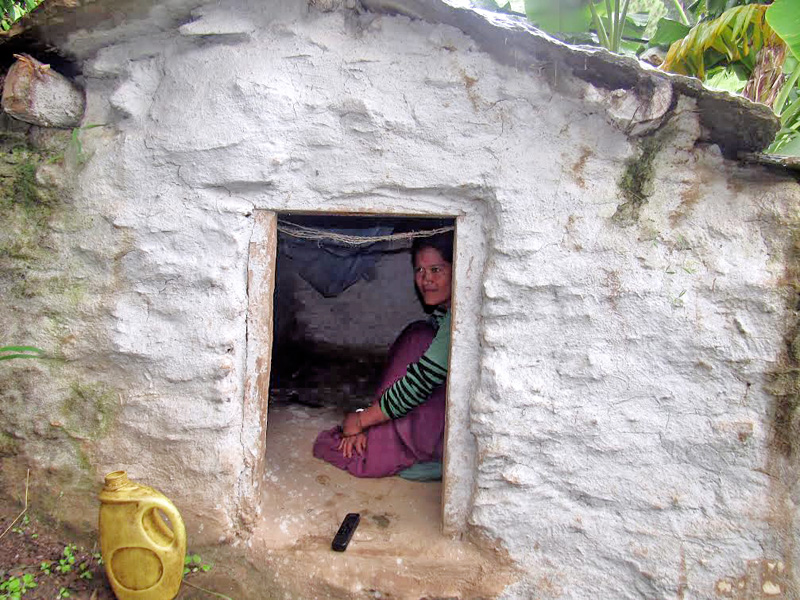Chhaupadi takes its toll on women in Achham
Bajura, November 23
Dambara Upadhyay, 21 of Timilsen VDC, Achham, was discovered dead inside a Chhaupadi shed last Friday night.
As is customary in these regions, she had left her home to stay at the shed until her menstruation cycle was complete. After having her meal, Upadhaya had reportedly gone to sleep on the fourth day of her monthly cycle, never to wake up again.
Family member Tirtha Raj Upadhaya said that Damabara’s death raised suspicions as she did not have any previous life-threatening diseases. “ Only her nose was bleeding, the body, however, had received no cuts or bruises,” Tirtha Raj said.
Achham police are investigating the incident.
Mysterious deaths apparently are not rare occurrences for the vulnerable women in the locality. Sharmila Bhul, 16 of Ridikot VDC, Achham was found dead inside a Chhaupadi shed two years ago.
Sixteen-year-old Laxmi Budha of Dhakari was charred to death during her stay in the Chhaupadi shed.
Similarly, Jhumadevi Shahi, 43, of Barala; and Dikra Devi Dhakal of Birpath VDC also died under similar conditions.
Women development officer Achham Bhagawati Aryal said that as many as nine girls and women have died while practising this ancient custom in the last nine years.
Though 31 Achham VDCs have been declared Chhaupadi free areas, the practice of keeping menstruating and post-natal women in sheds, usually a distance away from their family homes, is a practice that is so severely deep-rooted in society that it has proved impossible to eradicate despite all efforts.
Aryal said that they had set the target of declaring Achham a chhaupadi free district by 2019. Stakeholders, however, are sceptical doubtful about its implementation.
Informal Sector Service Center far-west regional office Chief Khadakraj Joshi said that the senseless death of women and girls is a matter of grave concern and sorrow.
Joshi held the state responsible for failure to eliminate this bad practice. “The practice can be uprooted only if those persisting with the practice are brought to justice,” Joshi added.
The practice of staying in sheds away from homes is still prevalent in the hilly districts of Bajura, Doti, Bajahng, Mugu, Kalikot, Baitadi and Dailekh, among other districts in the mid and far-west regions during menstruation and post-natal period.
While unmarried women are required to stay in the shed alone for the first seven days of the menstrual cycle, married women stay for five days.Rights activist Rukhmani Shah informed there was a strongly held belief that if menstruating girls and women are allowed to stay at home, their ‘unclean bodies’ would anger the gods.
The Supreme Court declared Chhaupadi an evil ten years ago and subsequently issued a directive to eliminate Chhaupadi in 2008. Despite legal reform, the practice continues unabated.






